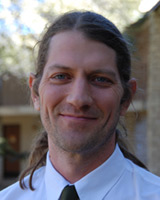A summary of a paper presented to the Central Texas Colloquium on Religion
The Central Texas Colloquium on Religion began five years ago as a celebration of the many scholarly conversations that move around under the umbrella of religious studies. It will come as no surprise to those who know me that I think theology has a place under that umbrella too. Just as theology is something less than it could be when it lacks the methods of textual analysis, historiography, and sociology, religious studies is prone to a certain blindness without the input of theology.
My comments about Shakespeare illustrate the importance of theology in the study of religion. Very recently, scholars have returned en masse to the questions of religion in Shakespeare studies. Central to this return has been the matter of his own allegiance. Was he Catholic? Anglican? Atheist? The fun/difficulty of this, of course, is that Shakespeare left us so little clues, and no direct evidence. That very ambiguity is what invites speculation. So for instance, concentrating just on the Catholic possibility, you could sort out two separate camps: there are those scholars who say that Shakespeare was Catholic, but “coded” his Catholicism into secret messages simply because any direct communication would have been illegal. Alternatively, there are those who argue that he was Catholic by conviction, but surrendered these convictions to make money as a playwright in Protestant England.
The trouble with arguments for a Catholic Shakespeare, then, is that they wind up saying that either Shakespeare was what most would call a bad playwright, or else he was a bad Catholic.
We can challenge both readings, though, with a little theology. King Lear is a tragedy that seems to give us Shakespeare at his most anti-Catholic: “as flies to wanton boys are we to the gods,” laments one troubled character. “They kill us for their sport.” But we can only call this anti-Catholic—and therefore find shelter in either the “coded Catholicism” or the “sell-out Catholic” option—if we ignore the complexities of actual Catholic theology. Thomas Aquinas’s account of providence begins with a distinction between God’s loving care of creation and God’s invitation to those creatures to self-govern. This invitation means, first, that there will always be the possibility of governance going awry, so long as there are governors motivated by something besides mirroring divine care. Secondly, suffering under bad governance does not defeat providence, but rather invites us to reflect on the injustice of a world that we sense ought to be different—precisely, as it happens, what the speaker of the line about flies was getting at. So if Shakespeare was not Catholic by practice or conviction, theologically he might as well have been.
Lear gives us an example, then, of a piece of literature open to religious interpretation, but at the same time shows us the potential shortcomings of any readings that do not take theology into account. In this way, I suggest, it is emblematic of the needs of that religious umbrella to make space for theological studies.
 Anthony Baker joined the seminary faculty in 2004. He teaches classes in both historical theology (focusing on a figure, an era, or a school of thought) and constructive theology (the building of persuasive arguments about God and creation). He is the author of Diagonal Advance: Perfection in Christian Theology, as well as various articles in Modern Theology, Political Theology, The Journal of Anglican Studies, Anglican Theological Review, and other journals and collections.
Anthony Baker joined the seminary faculty in 2004. He teaches classes in both historical theology (focusing on a figure, an era, or a school of thought) and constructive theology (the building of persuasive arguments about God and creation). He is the author of Diagonal Advance: Perfection in Christian Theology, as well as various articles in Modern Theology, Political Theology, The Journal of Anglican Studies, Anglican Theological Review, and other journals and collections.

